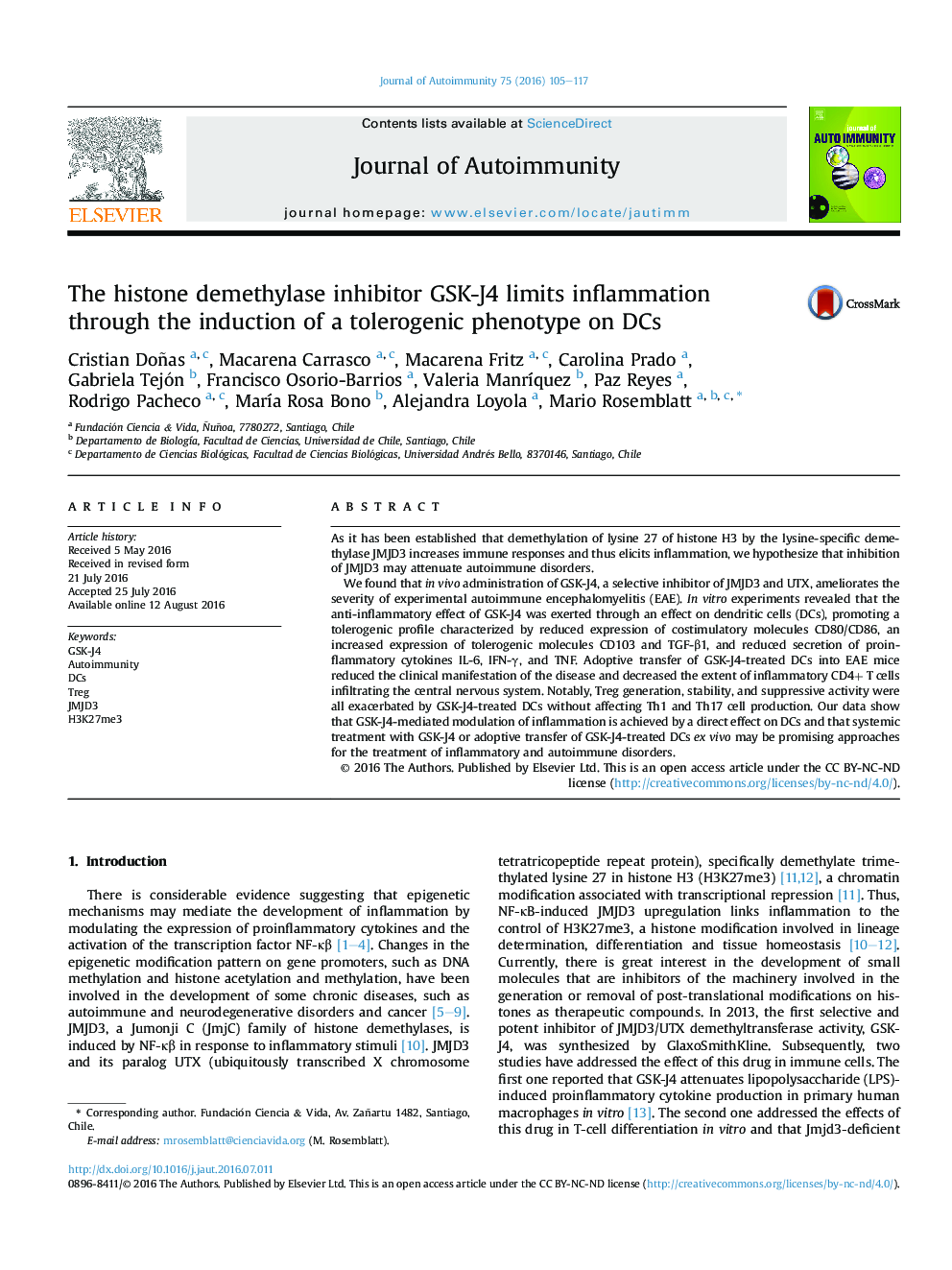| Article ID | Journal | Published Year | Pages | File Type |
|---|---|---|---|---|
| 5667953 | Journal of Autoimmunity | 2016 | 13 Pages |
â¢Systemic treatment of mice with the epigenetic drug GSK-J4 inhibited the development of EAE.â¢Adoptive transfer of GSK-J4-treated DCs attenuated inflammatory response mediated by CD4+ T cells.â¢GSK-J4 prevents DC maturation leading to a tolerogenic DCs population and improved Treg function.â¢H3K27me3 demethylase activity would act as a negative regulator of DC differentiation towards a tolerogenic phenotype.â¢GSK-J4 may be a promising drug for the treatment of autoimmune diseases.
As it has been established that demethylation of lysine 27 of histone H3 by the lysine-specific demethylase JMJD3 increases immune responses and thus elicits inflammation, we hypothesize that inhibition of JMJD3 may attenuate autoimmune disorders.We found that in vivo administration of GSK-J4, a selective inhibitor of JMJD3 and UTX, ameliorates the severity of experimental autoimmune encephalomyelitis (EAE). In vitro experiments revealed that the anti-inflammatory effect of GSK-J4 was exerted through an effect on dendritic cells (DCs), promoting a tolerogenic profile characterized by reduced expression of costimulatory molecules CD80/CD86, an increased expression of tolerogenic molecules CD103 and TGF-β1, and reduced secretion of proinflammatory cytokines IL-6, IFN-γ, and TNF. Adoptive transfer of GSK-J4-treated DCs into EAE mice reduced the clinical manifestation of the disease and decreased the extent of inflammatory CD4+ T cells infiltrating the central nervous system. Notably, Treg generation, stability, and suppressive activity were all exacerbated by GSK-J4-treated DCs without affecting Th1 and Th17 cell production. Our data show that GSK-J4-mediated modulation of inflammation is achieved by a direct effect on DCs and that systemic treatment with GSK-J4 or adoptive transfer of GSK-J4-treated DCs ex vivo may be promising approaches for the treatment of inflammatory and autoimmune disorders.
